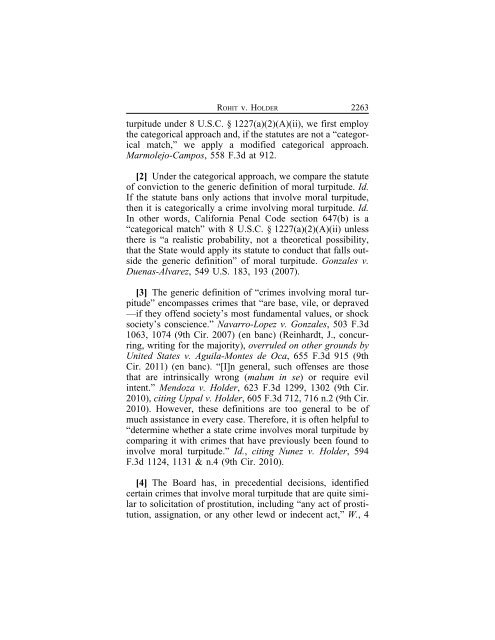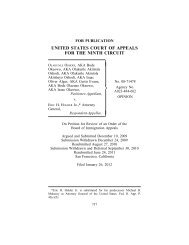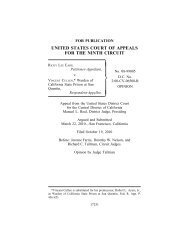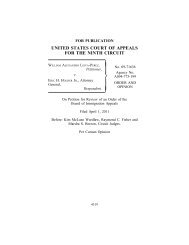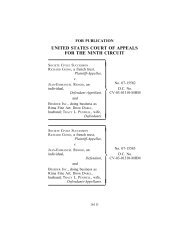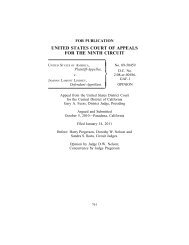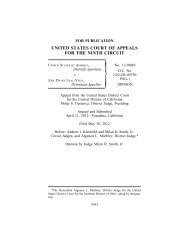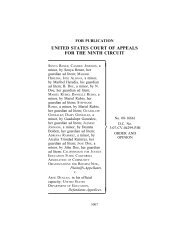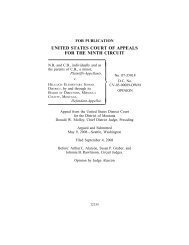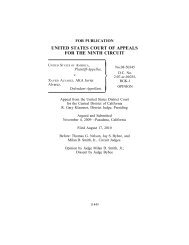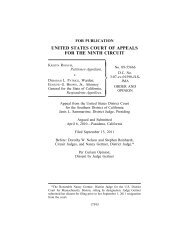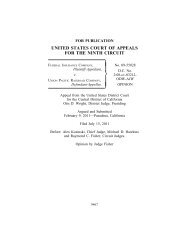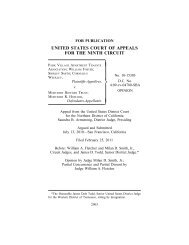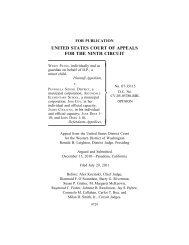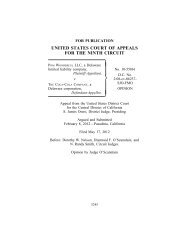ROHIT v. HOLDER - Ninth Circuit Court of Appeals
ROHIT v. HOLDER - Ninth Circuit Court of Appeals
ROHIT v. HOLDER - Ninth Circuit Court of Appeals
You also want an ePaper? Increase the reach of your titles
YUMPU automatically turns print PDFs into web optimized ePapers that Google loves.
<strong>ROHIT</strong> v. <strong>HOLDER</strong><br />
2263<br />
turpitude under 8 U.S.C. § 1227(a)(2)(A)(ii), we first employ<br />
the categorical approach and, if the statutes are not a “categorical<br />
match,” we apply a modified categorical approach.<br />
Marmolejo-Campos, 558 F.3d at 912.<br />
[2] Under the categorical approach, we compare the statute<br />
<strong>of</strong> conviction to the generic definition <strong>of</strong> moral turpitude. Id.<br />
If the statute bans only actions that involve moral turpitude,<br />
then it is categorically a crime involving moral turpitude. Id.<br />
In other words, California Penal Code section 647(b) is a<br />
“categorical match” with 8 U.S.C. § 1227(a)(2)(A)(ii) unless<br />
there is “a realistic probability, not a theoretical possibility,<br />
that the State would apply its statute to conduct that falls outside<br />
the generic definition” <strong>of</strong> moral turpitude. Gonzales v.<br />
Duenas-Alvarez, 549 U.S. 183, 193 (2007).<br />
[3] The generic definition <strong>of</strong> “crimes involving moral turpitude”<br />
encompasses crimes that “are base, vile, or depraved<br />
—if they <strong>of</strong>fend society’s most fundamental values, or shock<br />
society’s conscience.” Navarro-Lopez v. Gonzales, 503 F.3d<br />
1063, 1074 (9th Cir. 2007) (en banc) (Reinhardt, J., concurring,<br />
writing for the majority), overruled on other grounds by<br />
United States v. Aguila-Montes de Oca, 655 F.3d 915 (9th<br />
Cir. 2011) (en banc). “[I]n general, such <strong>of</strong>fenses are those<br />
that are intrinsically wrong (malum in se) or require evil<br />
intent.” Mendoza v. Holder, 623 F.3d 1299, 1302 (9th Cir.<br />
2010), citing Uppal v. Holder, 605 F.3d 712, 716 n.2 (9th Cir.<br />
2010). However, these definitions are too general to be <strong>of</strong><br />
much assistance in every case. Therefore, it is <strong>of</strong>ten helpful to<br />
“determine whether a state crime involves moral turpitude by<br />
comparing it with crimes that have previously been found to<br />
involve moral turpitude.” Id., citing Nunez v. Holder, 594<br />
F.3d 1124, 1131 & n.4 (9th Cir. 2010).<br />
[4] The Board has, in precedential decisions, identified<br />
certain crimes that involve moral turpitude that are quite similar<br />
to solicitation <strong>of</strong> prostitution, including “any act <strong>of</strong> prostitution,<br />
assignation, or any other lewd or indecent act,” W., 4


